Tracey Moffatt
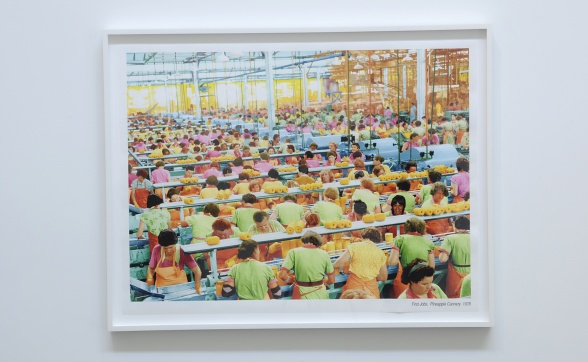
Tracey Moffatt, Pineapple Cannery, 1978 from First Jobs Self-portraits, 2008. Photograph by Adatabase
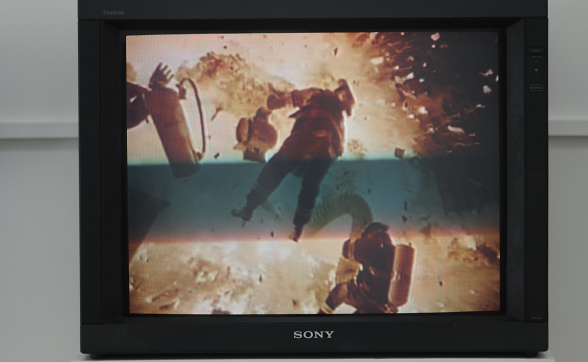
Tracey Moffatt, Doomed, 2008. Photograph by Adatabase
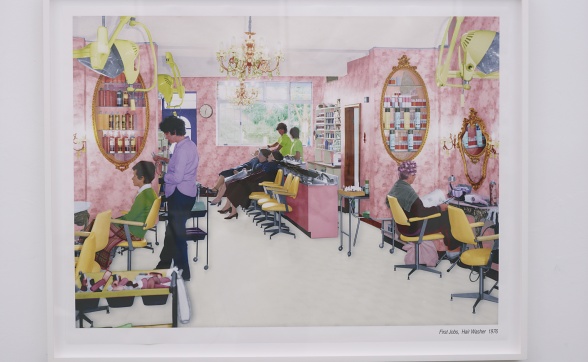
Tracey Moffatt, Hair Washer, 1967 from First Jobs Self-portraits, 2008. Photograph by Adatabase
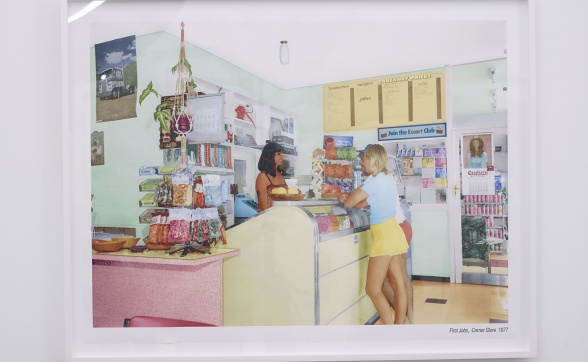
Tracey Moffatt, Corner Store, 1977 from First Jobs Self-portraits, 2008. Photograph by Adatabase
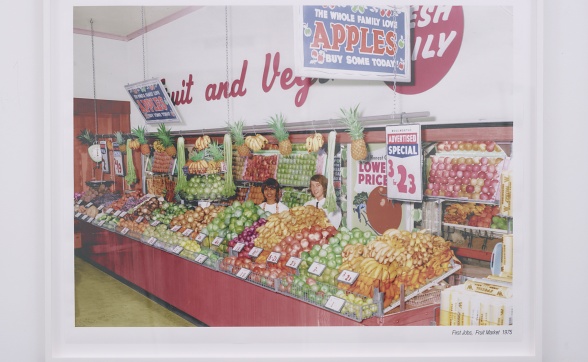
Tracey Moffatt, Fruit Market, 1975 fromFirst Jobs Self-portraits, 2008. Photograph by Adatabase
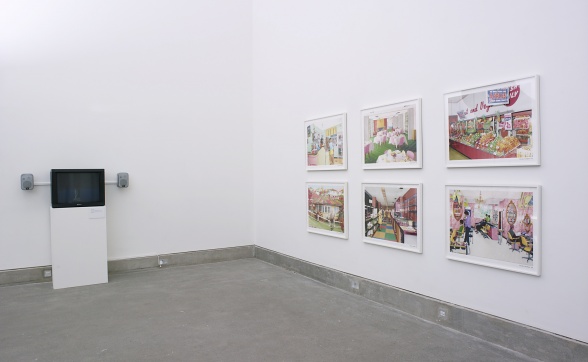
Tracey Moffatt, First Jobs Self-portraits, (installation view), 2008. Photograph by Adatabase
Tracey Moffatt, Pineapple Cannery, 1978 from First Jobs Self-portraits, 2008. Photograph by Adatabase
Since the 1980's Tracey Moffatt's work has been characterised by a delicious ambiguity that leaves viewers wondering where reality ends and fantasy begins. Her photographs and films particularly draw upon and critique popular culture and the history of cinema, art and photography, and employ devices such as painted background costumes and models. In earlier constructed realities, Moffatt's characters navigate narratives that are mysterious and suggestive, with veiled references to the politics of identity and representation occurring often.
In response to MADE UP, Moffatt (b. 1960, Brisbane) presented First Jobs – Self Portrait Series (2008) comprising eight brightly coloured photographs. Unlike her earlier works featuring actors, the images in this film depicted the artist role-playing odd jobs she had as a teenager and college student in Australia in the 1970s and 80s. Using found imagery and photoshop illusion, Moffatt created re-imagined scenes from her past, where she appeared happily at work in various settings ordinarily associated with abject drudgery or low paid boredom, such as a canning factory or an office.
Here Moffatt’s past is candy-coloured referencing not only the nostalgia of hand-coloured postcards of the ‘Wish you were here’ variety but also, and more personally, the delight she finds in looking back at the dreary, character-building jobs that gave her a work ethic. Read in this way, fact and fiction merge in the photographs to suggest that no matter how mundane the job, your mind can always travel or imagine a life beyond the factory floor.
In stark contrast to the rosy, self-reflective nature of First Jobs, Moffat’s video Doomed (2008) depicts every kind of catastrophe imaginable, from the reconstruction of natural events such as fire, flood and earthquake to fictional other-wordly calamities brought about by alien invasion. Made in collaboration with artist Gary Hillberg and featuring a collage of clips from numerous disaster films, Doomed is an over-the-top, exuberant celebration of a cinematic genre. Moffat’s use of black humour throughout mirrors contemporary global anxieties about the environment, war and violent conflict, and provokes a range of emotional responses. The speed of the editing accompanied by a pounding electronic soundtrack accentuates the carnage and terror depicted as the pace of Doomed builds in breathless crescendo to an ultimately spectacular finale.
Tracey Moffat at Liverpool Biennial 2008
First Jobs - Self Portrait Series, 2008
Archival pigment on rice paper with gel medium prints
Commissioned by Liverpool Biennial 2008
Exhibited at the Liverpool Biennial Visitor Hub (former ABC Cinema, Lime Street)
Supported by
Australian Government
Australia Council for the Arts
Liverpool Biennial
55 New Bird Street
Liverpool L1 0BW
- T +44 (0)151 709 7444
- info@biennial.com
Liverpool Biennial is funded by
Founding Supporter
James Moores